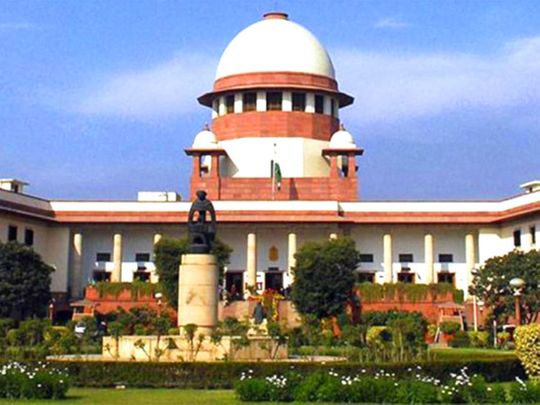
New Delhi: A controversial case of an inter-faith marriage from Chattisgarh was taken up for hearing in the Supreme Court on Wednesday, with the court stressing it was only concerned with the woman’s future.
A Hindu woman had married a Muslim man, who admitted that he converted to Hinduism in order to be accepted by the woman’s family. The woman’s family, however, disputed the man’s conversion to Hinduism, calling it a sham.
The matter was heard earlier by the apex court.
On Wednesday, a bench headed by Justice Arun Mishra said: “We are only concerned only about her future. We are not against inter-religious or inter-caste marriage.”
It also observed that the man should be a “loyal husband” and a “great lover”.
As the counsel for the woman’s father insisted that it was a racket to trap women, the apex court asked the man to file an affidavit and show his bona fides. It also queried the man on whether he had legally changed his name after the marriage in an Arya Samaj temple.
As the counsel for the woman’s father said that his daughter does not need any protection, the top court sought a reply from the state government while allowing the intervention application of the woman, as she was not made party to her parents’ plea.
Last year, a bench headed by then Chief Justice Dipak Misra decided that the woman should go with the parents, purely if she intends to return. Subsequently, she started staying with her parents. However, the police later took away the woman away from her parents’ house, and the matter reached the Chhattisgarh High Court, which ruled that she had expressed willingness to be with her husband.
The counsel appearing for her parents submitted before the court that the husband has converted back to Islam and the apex court stated that it would look into the matter.
Meanwhile, the counsel appearing for the woman contended she does not need any protection except from her father,.
At all this, the court observed that it is not the matter of law but rather it is inclined to look into how the future would pan out for the woman.
“What if the husband leaves the woman? We are not against inter-religious or inter-caste marriage. Such marriages should be encouraged,” it said, but also observed that women are left in the lurch by some partners.












